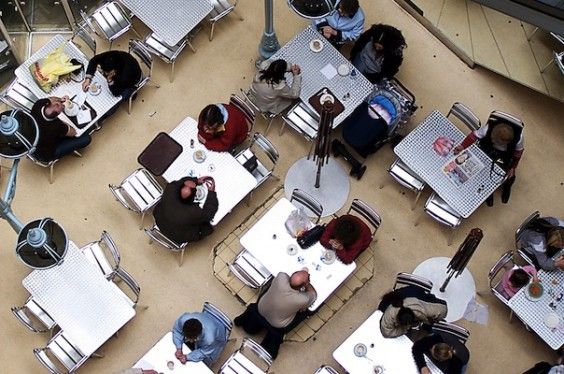Greatist News examines and explains the trends and studies making headlines in fitness, health, and happiness. Check out all the news here.
College kids aren’t known for their healthy food choices. Frat party guests guzzling free beer and 4 a.m. runs to local pizza joints make up most of the stereotypes. But campus eating habits are slowly changing as more students are taking an interest in nutrition as well as environmental sustainability.
One example of this growing trend is the Real Food Challenge, a national initiative that aims to bring healthy, sustainably produced food to college campuses. The organization is pushing for college administrators to fill dining halls with more “real food,” or grub that’s local, fair, sustainable, and humane.
What’s the Deal?
The Real Food Challenge started out as a program of The Food Project, a non-profit organization in Boston. Today, the RFC is working to unite college students across the country in an effort to create a healthy, fair, and green food economy. The main goal is to get colleges to source at least 20 percent of food from real (i.e. local, sustainable, and humane) sources. By 2020, RFC hopes to take $1 billion of the funds that currently go toward industrial agriculture and use it for local, sustainable, and fair food purchases.
So far, 11 colleges and universities have signed onto the challenge, including Wesleyan University and Oberlin College, and more than 100 others have held RFC campaigns and events. Some institutions have started using the “Real Food Calculator,” which involves taking a closer look at how administrators are spending their money on food. The initiative has also received support from sponsors including the Clif Bar Foundation and Do Something.
Why It Matters
Over the past few years, college students and administrators have been some of the most vocal advocates of the importance of a healthy, eco-friendly lifestyle. A recent op-ed in the Chronicle of Higher Education urged colleges to assume a more active role in leading the national movement toward sustainable and socially just food practices. Schools such as Princeton University are making it more of a priority to purchase food from local sources. At other institutions students grow food in on-campus gardens and organic farms.
While RFC and other similar initiatives have garnered a ton of support so far, it may be a while before universities make the switch from industrial agriculture to locally grown food. These institutions still rely heavily on outside corporations and it’s unrealistic to think these relationships will just end overnight. That’s why it’s important to educate students — and people in general — about the benefits of sustainable and humane food practices, so that the next generation of college and university administrators can make different choices. Here’s hoping someone opens a locally sourced pizza and beer chain by us in the meantime.
What do you think of the eats in your college cafeteria? How do they measure up in terms of nutrition and sustainability? Let us know in the comments below or tweet the author directly at @ShanaDLebowitz.

